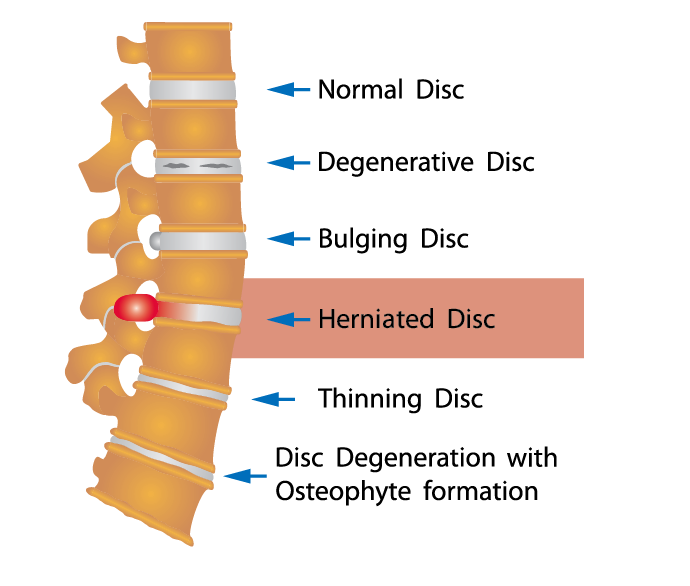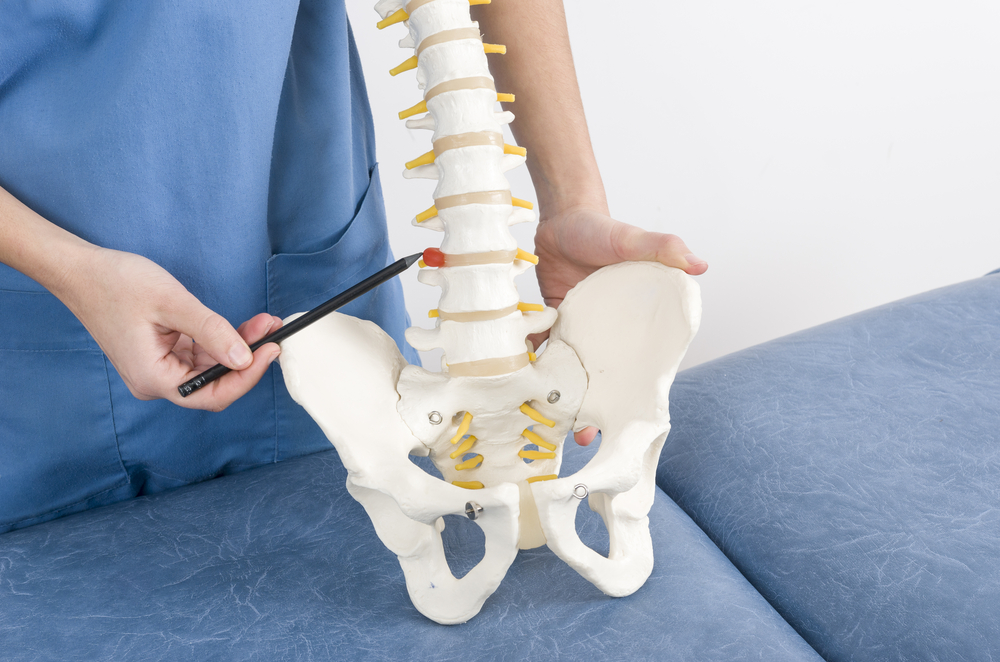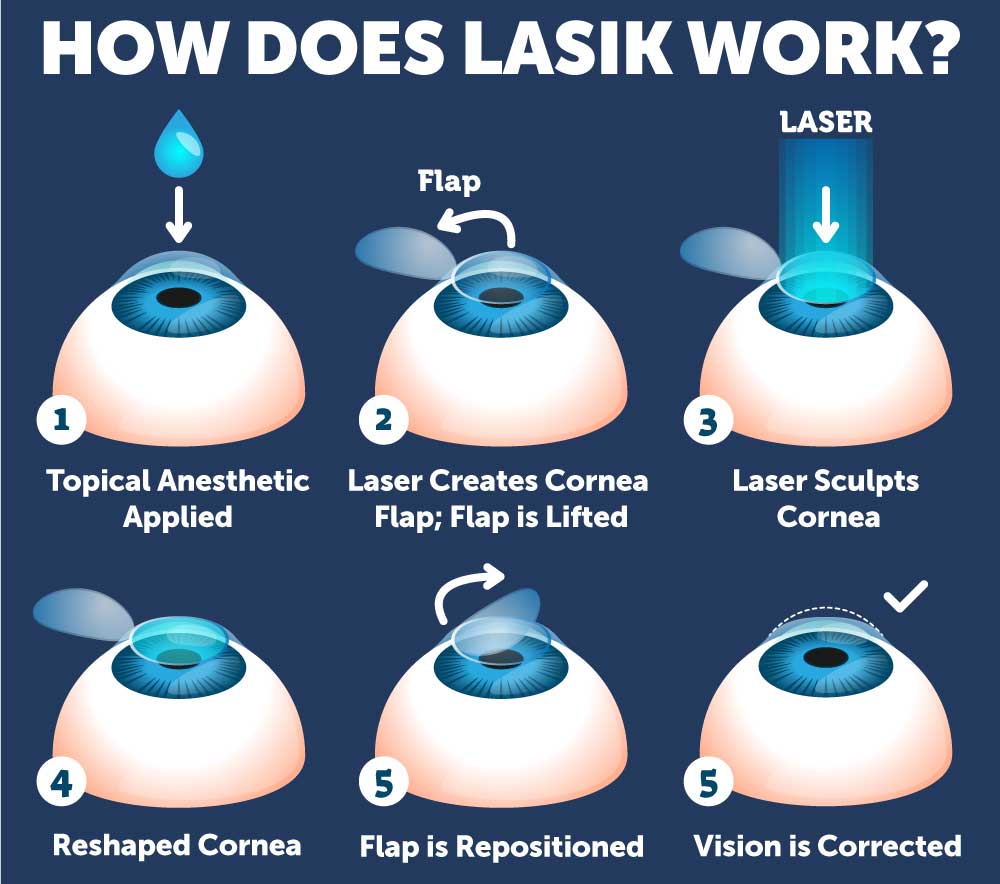LASIK surgery, also known as laser-assisted in situ keratomileusis, is a popular refractive surgery procedure that aims to correct vision problems such as myopia (nearsightedness), hyperopia (farsightedness), and astigmatism. The surgery involves reshaping the cornea, the clear front part of the eye, to improve visual acuity.
During the procedure, the surgeon uses a laser to create a thin flap in the outer layer of the cornea. This flap is then folded back, and the underlying corneal tissue is gently removed using an excimer laser. The laser precisely vaporizes the tissue, reshaping the cornea according to the individual’s specific vision needs. Once the desired reshaping is complete, the flap is put back into place, where it typically adheres without the need for stitches.
LASIK surgery offers several advantages over other vision correction methods. It is a quick, efficient, and virtually painless procedure. Patients usually experience improved vision almost immediately after the surgery, with minimal downtime required for recovery. Most individuals achieve 20/20 vision or better, drastically reducing their dependence on glasses or contact lenses.
However, LASIK surgery may not be suitable for everyone. Factors such as age, eye health, and specific eye conditions can affect the eligibility for the procedure. It is crucial to consult with an experienced eye surgeon to determine if LASIK is the right option for an individual’s unique circumstances.
As with any surgical procedure, LASIK surgery carries some risks. Possible complications include dry eyes, glare, halos, or difficulty with night vision. However, severe complications are rare. Engaging in proper post-operative care, including the use of prescribed eye drops and regular follow-up visits, helps minimize the likelihood of these issues.
In conclusion, LASIK surgery is a safe, effective procedure that can provide lasting vision improvement for individuals with common refractive errors. By reshaping the cornea, it corrects nearsightedness, farsightedness, and astigmatism. While not suitable for everyone, LASIK offers a quick recovery and reduced reliance on glasses or contact lenses for many individuals. Consulting with a qualified eye surgeon is vital to determine if LASIK is the right choice for vision correction.
How long does LASIK last?
While the effects of LASIK surgery are permanent, the benefits can decrease over time. For most patients, the results of this surgery will last a lifetime. About 10-12% of patients nationwide will need enhancement surgery because of anatomical changes to the eye/eyes.Mar 3, 2022
Can I have LASIK again after 20 years?
Generally speaking, there isn’t a limit to how many times you can get LASIK surgery during your lifetime, but that doesn’t mean that you’re a good candidate for an enhancement. The main driving factor in whether or not you can continue to get LASIK is how thick your cornea is.
Is LASIK surgery very painful?
LASIK eye surgery is not painful, but there are two things about it that you might not like. You will feel a light thumb press on your eye during the procedure. You may also see bright lights from the microscope and feel a little pain when a medicine to numb your eyes is injected into your eyes.
How much does LASIK cost in Dallas?
Prices range from $250 to $2599 per eye depending on Prescription, Technology upgrade and Aftercare. Prices do not include the pre-op fee, punctal plugs or any other testing or exam recommended.
How serious is a herniated disc in the neck?
The severity of the disease can range from mild to severe, and even life-threatening. This activity outlines the etiology, evaluation, treatment, and complications from cervical disc herniations, as well as highlighting the role of interprofessional teams in evaluating and treating patients with this condition.

What does a cervical herniated disc feel like?
If you have a herniated cervical disc, you may feel pain that radiates down your arm and possibly into your hand. You may also feel pain on or near your shoulder blade, and neck pain when turning your head or bending your neck. Sometimes you may have muscle spasms (meaning the muscles tighten uncontrollably).
What happens if you have a herniated disc for too long?
Nerve Damage Compressed nerves can lead to significant conditions, including loss of sensation in lower extremities or even loss of bowel control. The sooner you seek medical treatment for a herniated disc, the more likely your spine specialist can provide you with non-surgical treatment options.
How do you fix a cervical herniated disc?
The most common operation for a herniated cervical disc is called an anterior cervical discectomy and fusion (ACDF). This procedure involves an incision in the neck, which exposes the front of the spine. The disc is removed relieving any pressure on the spinal cord and nerve roots.Nov 8, 2022
What happens if a cervical herniated disc goes untreated?
Chronic pain One long-term effect an untreated herniated disc in the neck can have is causing chronic pain. A herniated disc tends to rub against spinal nerves in the neck, and this can irritate the nerve and lead to shooting pains. These pains are most commonly felt in the neck, shoulder and arm.




